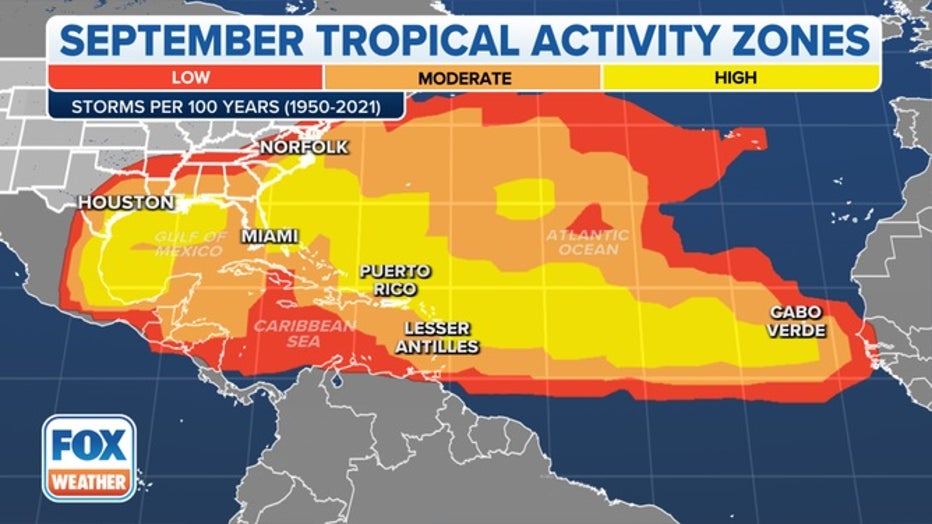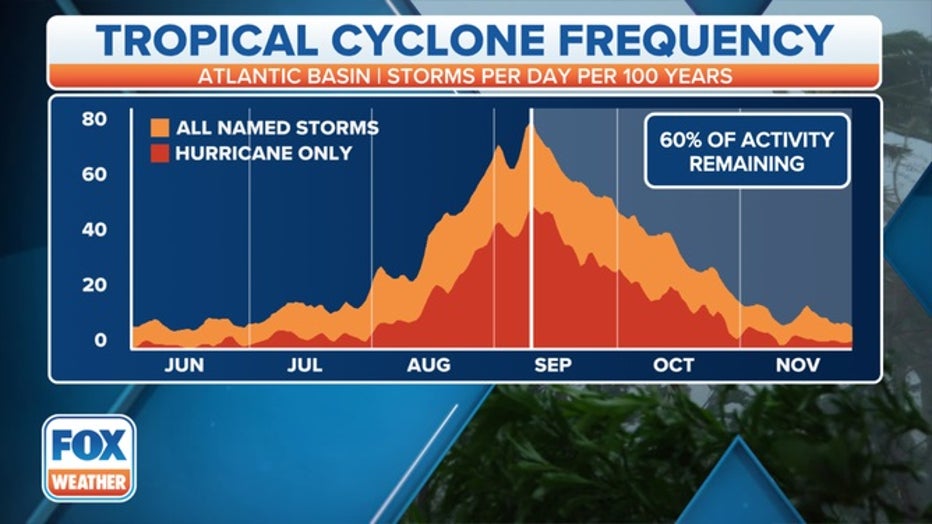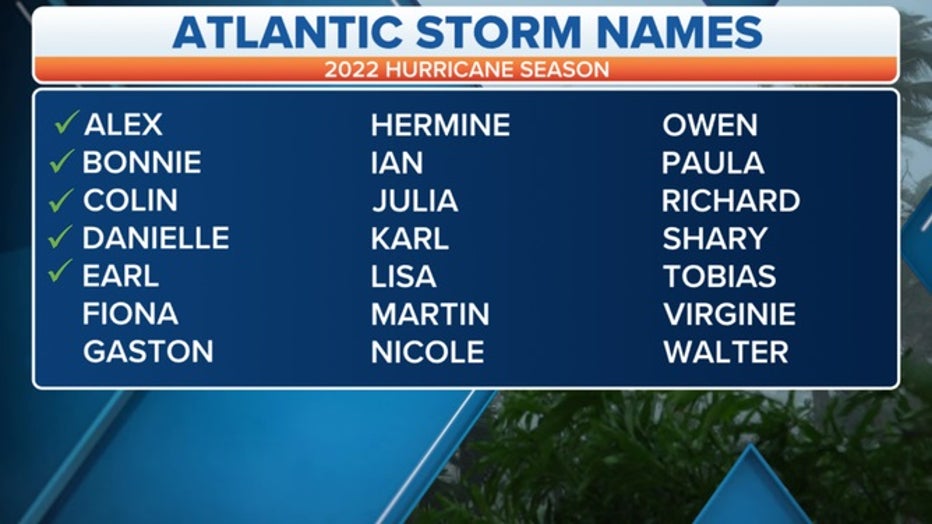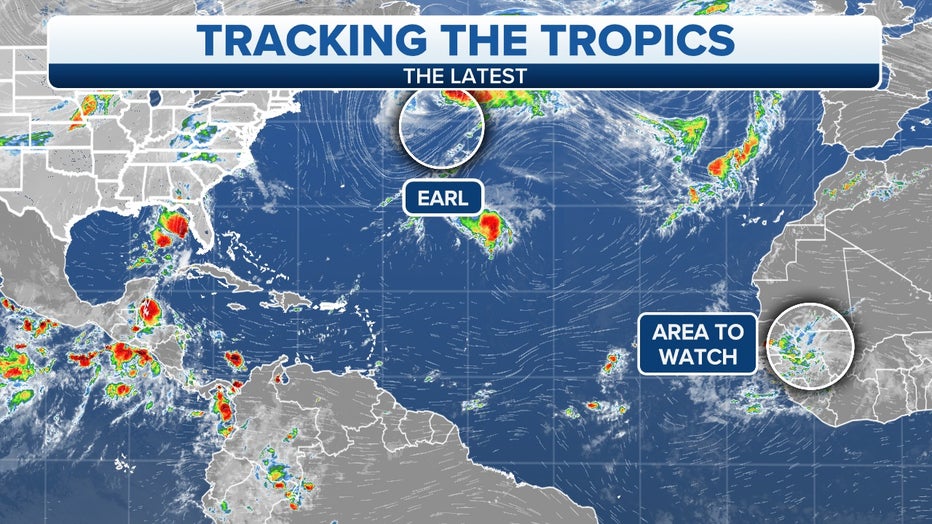Atlantic hurricane season reaches climatological peak Sept. 10
Sept. 10 is climatological peak of Atlantic hurricane season
Sept. 10 marks the climatological peak of the Atlantic hurricane season, as that's the date when the most tropical storms and hurricanes have roamed the Atlantic Basin in the historical records.
Sept. 10 marks the climatological peak of the Atlantic hurricane season, as that's the date when the most tropical storms and hurricanes have roamed the Atlantic Basin in the historical records.
Early to mid-September is the time of year with the most optimal conditions for the formation of tropical cyclones in the Atlantic. This is when sea-surface temperatures reach their warmest levels of the season, upper-level winds in the tropical Atlantic Ocean tend to relax, Saharan dust is less widespread than earlier in the summer, and tropical disturbances frequently roll off the western coast of Africa.
The combination of these factors opens up more real estate for tropical development during the hurricane season's annual peak than at any other point in the year. The map below shows the vast area where tropical storms and hurricanes typically occur in September, which covers much of the Atlantic Ocean, Caribbean Sea and Gulf of Mexico.
WHERE TROPICAL STORMS AND HURRICANES TYPICALLY OCCUR DURING EACH MONTH OF ATLANTIC HURRICANE SEASON

This map shows where tropical cyclone activity tends to occur during September. The data are shown as the combined number of tropical depressions, tropical storms and hurricanes whose centers pass within 125 miles of a point on the map during a 100-y
Even though we've reached the climatological peak, roughly 60% of an average Atlantic hurricane season is still remaining from Sept. 10 through the end of the season on Nov. 30.
The period from August through early October tends to produce the most hurricanes and tropical storms in an average year, with September marking the single most active month of the Atlantic hurricane season.
HERE'S WHY THE ATLANTIC HURRICANE SEASON RUNS FROM JUNE TO NOVEMBER

While the Atlantic hurricane season officially runs from June 1 to Nov. 30, Sept. 10 is the date when the most hurricanes and tropical storms have occurred in the historical records. (FOX Weather)
2022 Atlantic hurricane season off to a slow start
The Atlantic has spawned five named storms as of Sept. 10, including two hurricanes that just roamed the basin this past week: Danielle and Earl.
However, before the formation of those two most recent storms, the Atlantic hurricane season went through the entire month of August without producing a single tropical storm or hurricane for only the second time in the modern satellite era, which began in 1967.
HURRICANE SEASON 2022: AUGUST FINISHES WITHOUT ANY NAMED STORMS FOR FIRST TIME IN DECADES
According to the National Hurricane Center, an average season in the Atlantic features an additional six named storms after the Sept. 10 climatological peak. Four of those six typically become hurricanes, with two becoming major hurricanes (Category 3 or stronger).

A table showing an alphabetical list of the 2022 Atlantic tropical cyclone names as selected by the World Meteorological Organization. The official Atlantic hurricane season runs from June 1 through Nov. 30. (FOX Weather)
There are a few areas in the Atlantic that will be monitored for possible tropical development over the next several days.
HOW TO WATCH FOX WEATHER ON TV
The next system to organize into a tropical storm with winds of at least 40 mph will receive the name Fiona.

The circled areas are being monitored for possible tropical development in the Atlantic. (FOX Weather)
LINK: Get updates and more on this story at foxweather.com.

